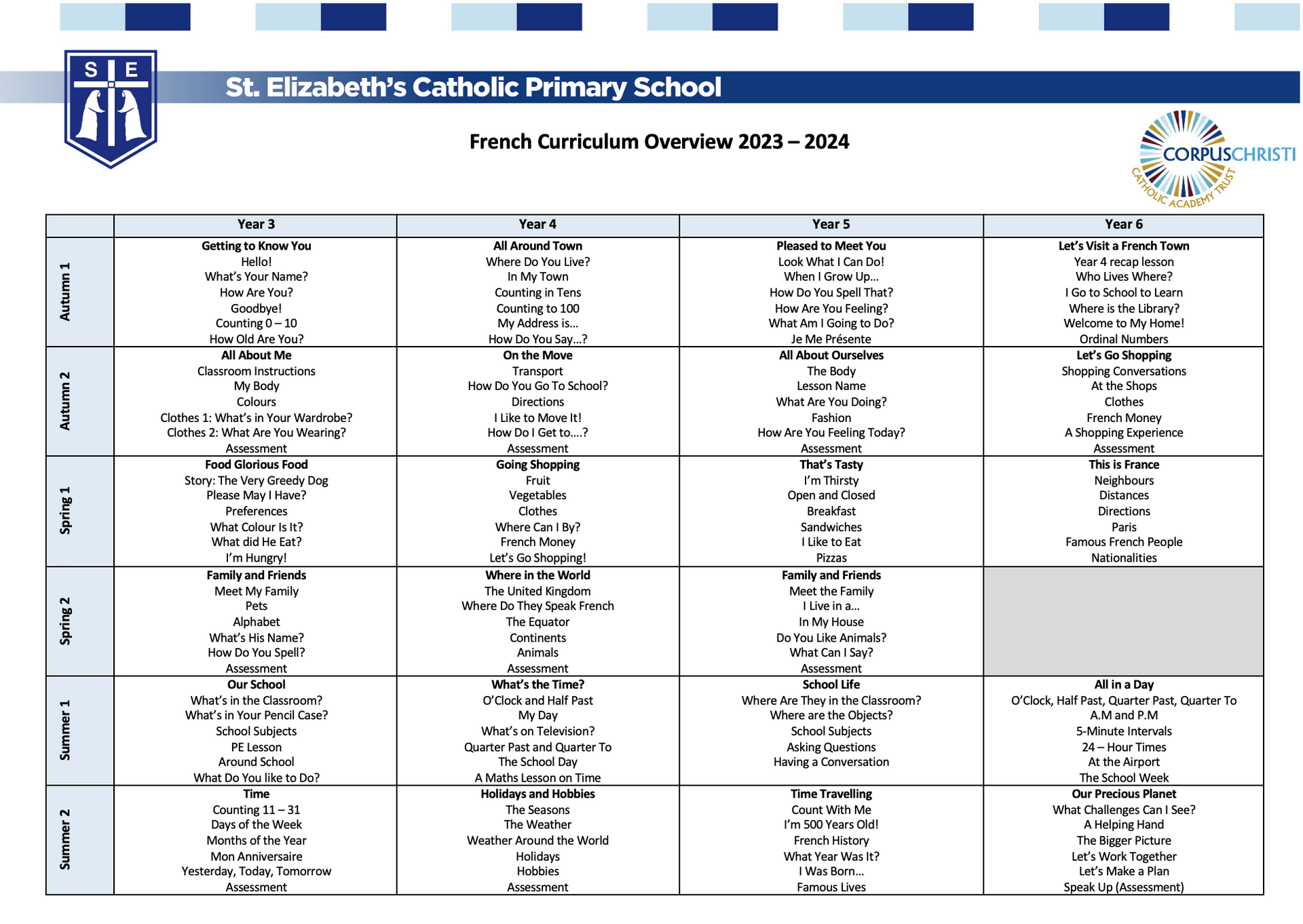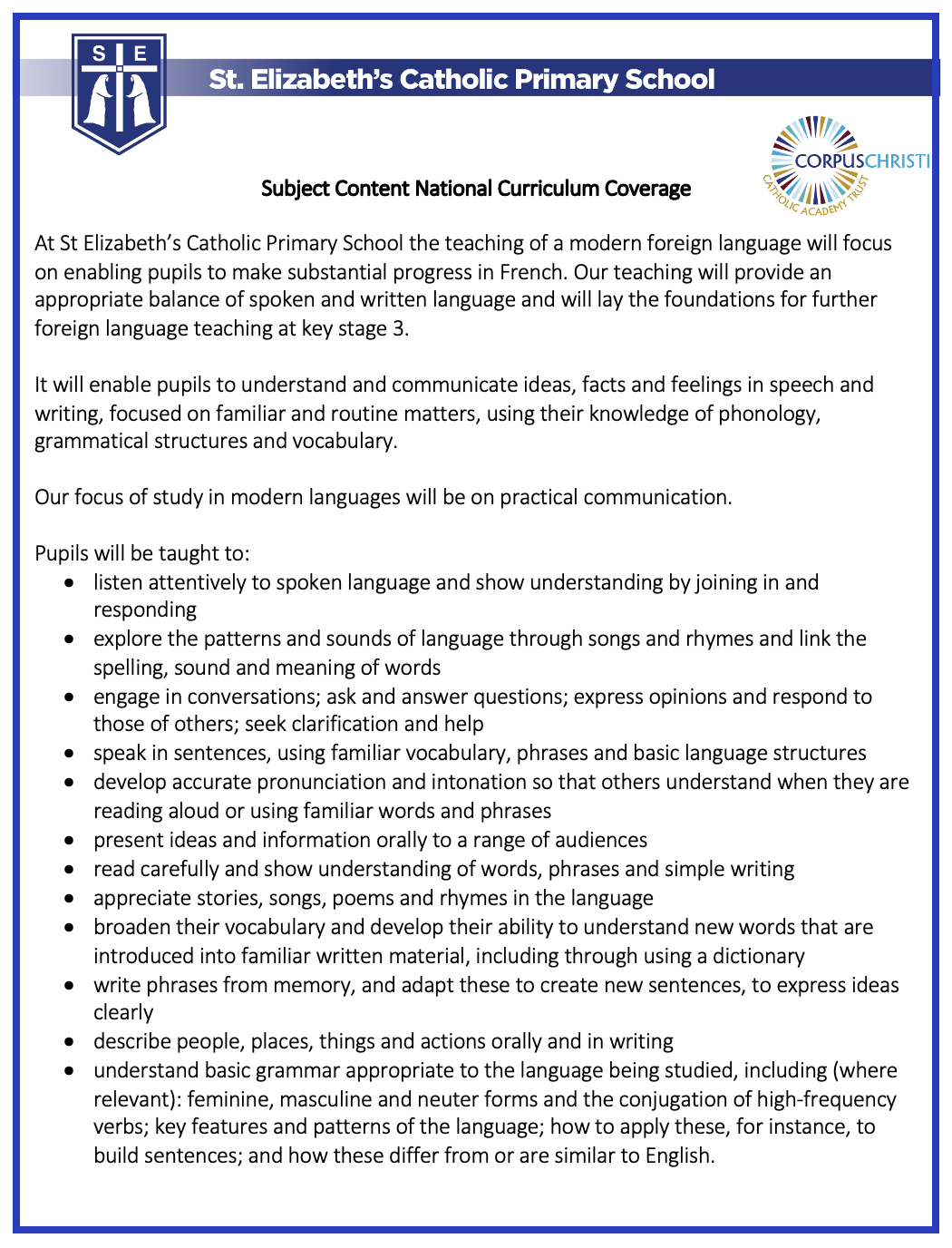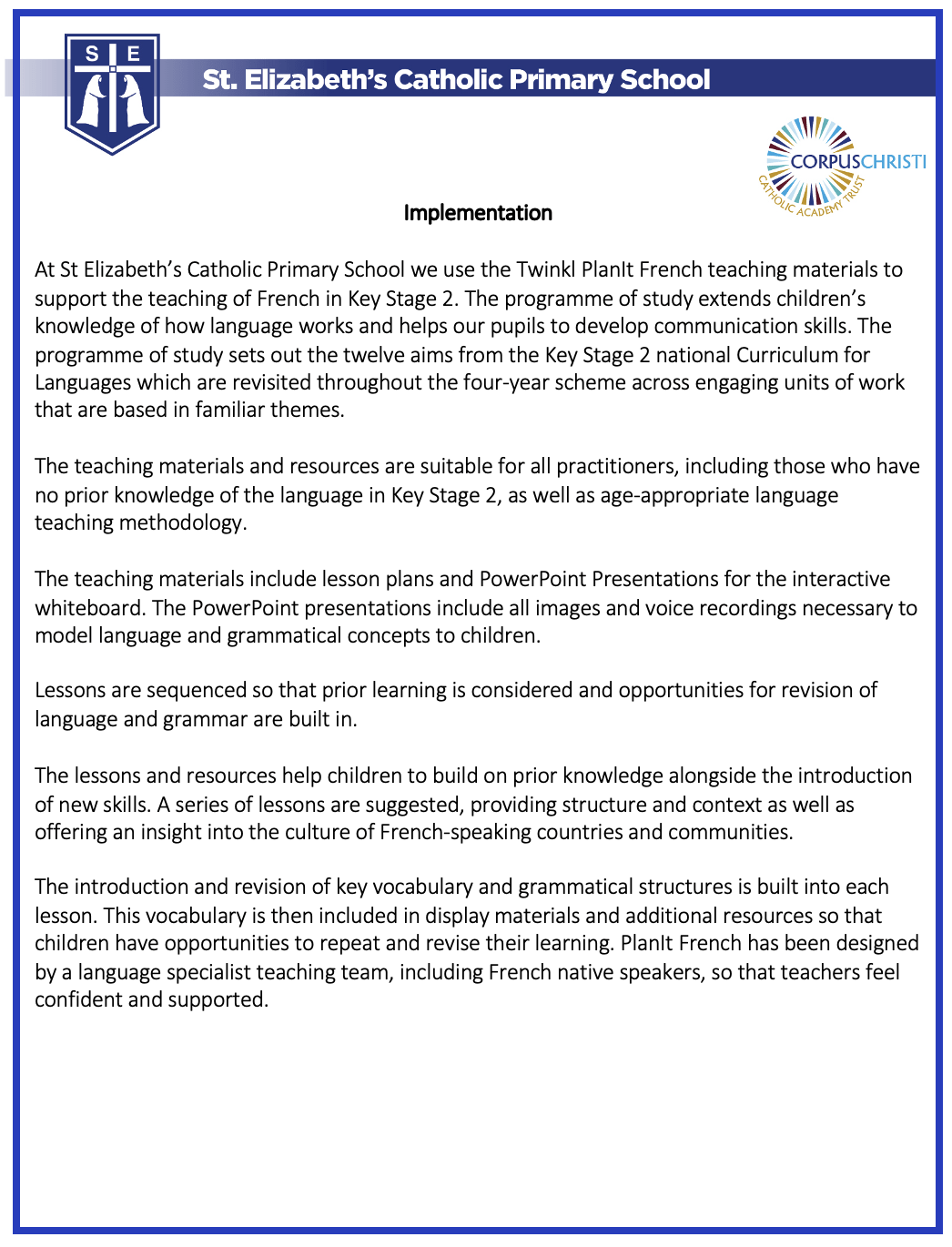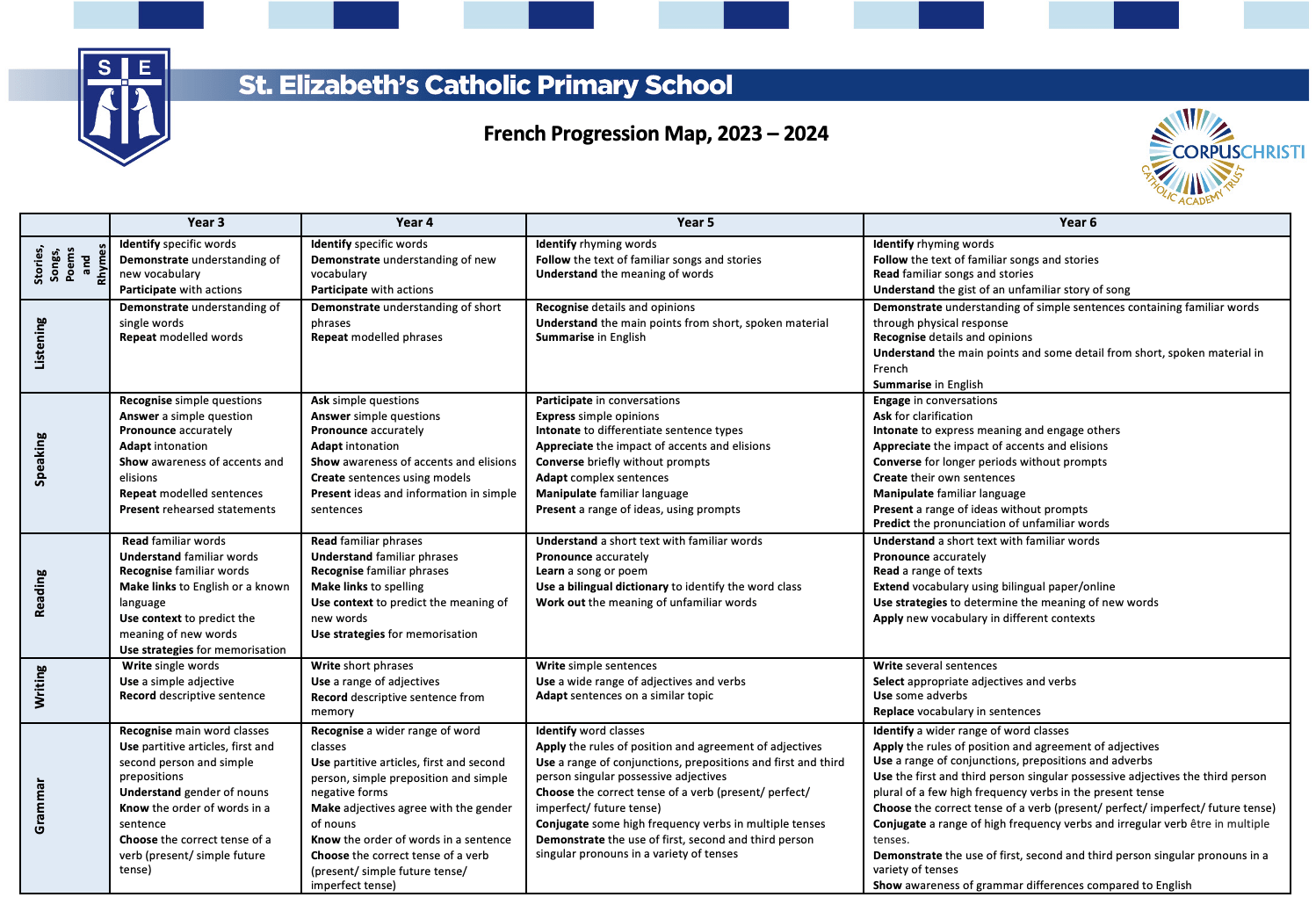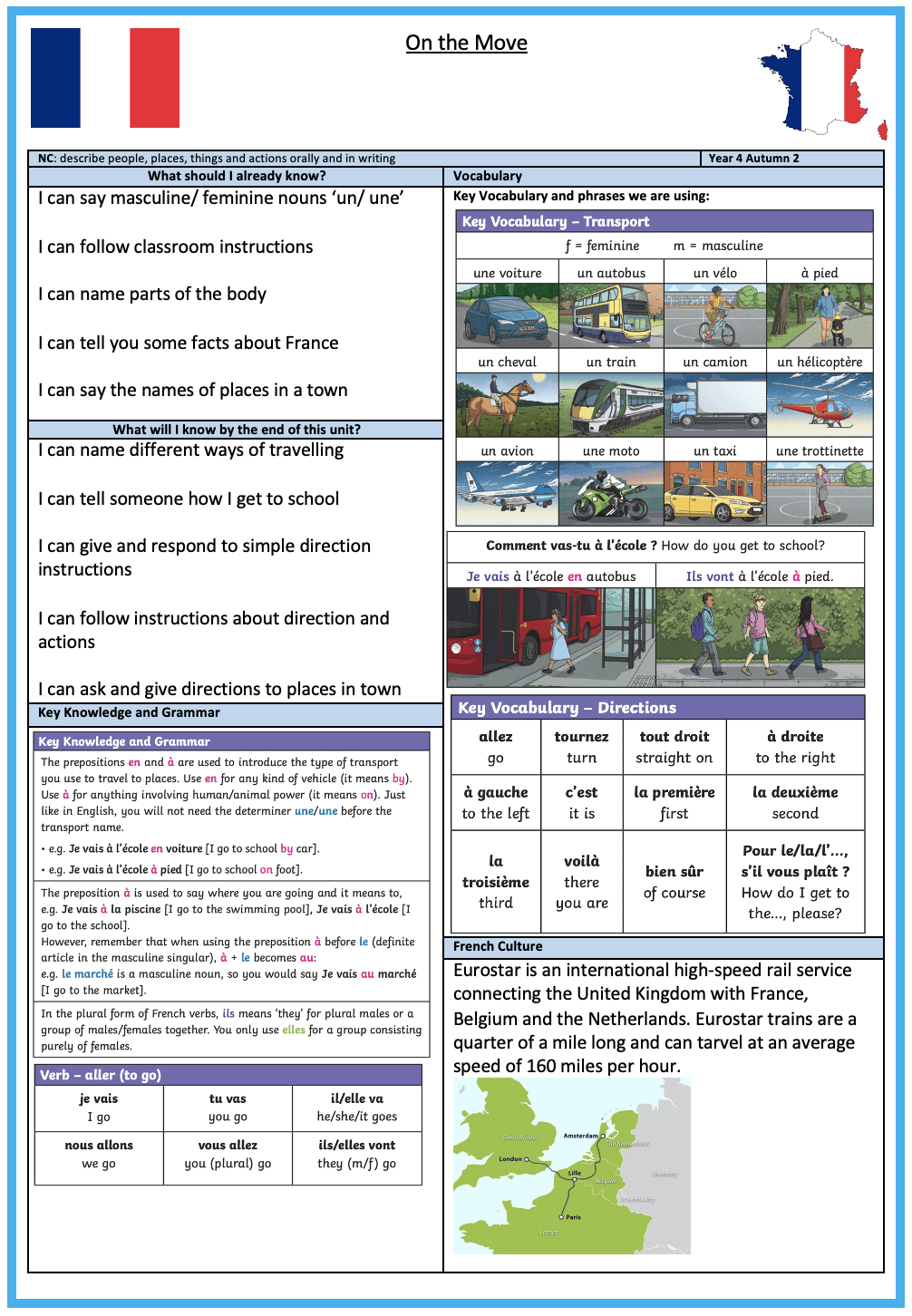Languages
Why is learning a language important?
Learning a foreign language widens the pupils view of the world, exposes them to other cultures and enables deeper and more meaningful connections to the globalised world they live in. Language learning allows pupils at St Elizabeth’s to foster their creativity, learn a new way of thinking and gain a greater understanding of the diversity of people, their cultures and traditions. French was chosen as the modern foreign language to learn at school the chosen language at many feeder secondary schools in the area. There are around 220 million French speakers in the world, about 45% of modern English words are of French origin and along with English, French remains an influential language in the diplomatic world.
Our robust MFL curriculum encourages pupils to gain a love of learning languages, which also provides the foundation for learning other foreign languages when they leave St Elizabeth’s, and in the future MFL broadens opportunities for pupils to work or study in other countries.
When is French taught?
French is taught weekly for 30 minutes in Key Stage 2. Lessons are highly structured and there are 6 thematic units of work for every year group. Pupils complete 2 units per term and each unit has an individual learning focus and clear line of progression. In additional to continuous observations of pupils during class time, assessments take place each half term to ensure pupils are formally assessed over the academic year in all four language learning skills of reading, speaking, listening and writing. The long-term plans and curriculum content for each year group is detailed below:
How is the Subject Content from the National Curriculum Covered?
Subject Content National Curriculum Coverage
Implementation
French Progression Map
Example Knowledge Organiser





